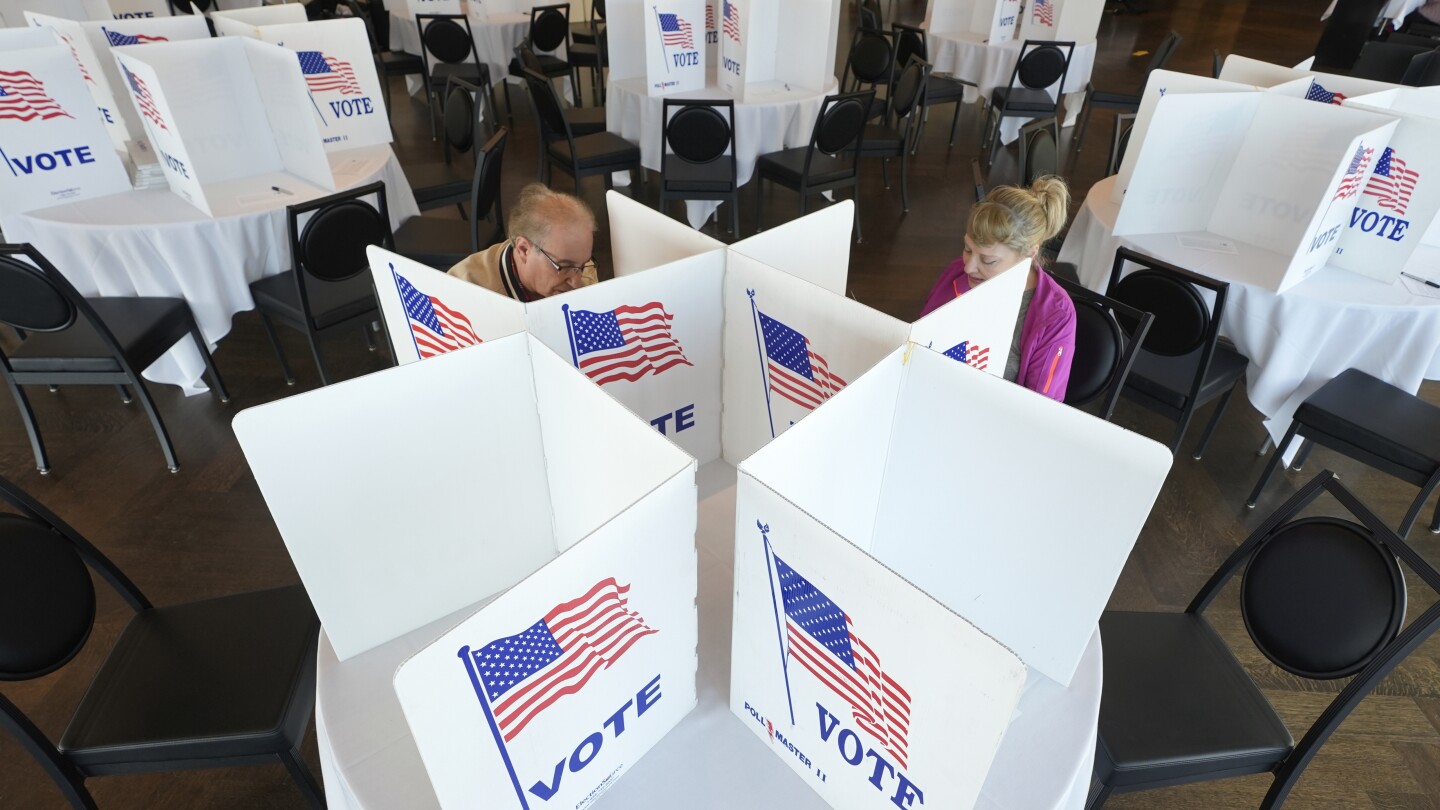Michigan bill does not prohibit recounts based on allegations of election fraud

CLAIM: A bill signed into law this week by Michigan Gov. Gretchen Whitmer prohibits vote recounts based on election fraud allegations.
AP’S ASSESSMENT: False. The bill, SB 603, does not prohibit such recounts, according to two state senators involved in updating the laws around recounts. It stipulates that candidates may request a recount if they have a “good-faith belief” that they would have had a “reasonable chance” to win the election if not for an “error” in the vote counting process. That means that the number of votes the petitioning candidate requests to be recounted must be greater than the difference of votes between them and the winning candidate.
THE FACTS: After Whitmer, a Democrat, signed the bill on Monday, social media users misrepresented what it will mean for the ability to obtain recounts.
“Holy Fvck! Michigan Gov. Whitmer signed bills into law that will prohibit election recounts conducted due to allegations of voter fraud,” reads one X post that had received approximately 43,000 likes and 23,500 shares as of Friday. “Democrats will stop at nothing to prevent election fraud from being exposed!”
But recounts can still be initiated by fraud allegations under SB 603, according to its sponsors. They say the bill was written to make obtaining a comprehensive recount easier, if there is legitimate reason to believe it could change the result of an election, and to prevent frivolous ones. It also clarifies how suspected fraud should be investigated.
“This whole piece about fraud is just honestly based on a lot of misinterpretation, of which I think some of it’s probably intentional misinterpretation,” said Democratic state Sen. Stephanie Chang, the bill’s primary sponsor.
State Sen. Jeremy Moss, the primary sponsor of a companion bill, SB 604, explained that SB 603 does the opposite of what the claims spreading online allege.
“It is modernizing the law so that all ballots can be subject to a recount,” said the Democrat, who is chair of the Michigan Senate elections and ethics committee. “This is making the integrity of the election results stronger. And this is subjecting more, if not all, ballots in a given election to a recount.”
SB 603 states that a candidate must “be able to allege a good-faith belief that, but for error in the canvass or returns of the votes, the candidate would have a reasonable chance of winning the election.” It further stipulates that “the number of votes requested to be recounted must, at minimum, be greater than the difference in votes between the petitioning candidate and the winning candidate.”
Similar guidelines for ballot questions are outlined in the bill.
Accusations that the bill doesn’t allow for recounts because of fraud grow in part from a wording change in SB 603, which replaces the words “fraud or mistake” with “error.” Chang and Moss explained that fraud is included under the error umbrella, and that the language was condensed in part because there have been candidates who were hesitant to request a recount if fraud wasn’t a concern.
Critics, however, have suggested that this change could be detrimental to a fair electoral process.
“They ultimately work to discourage the notion that fraud could be a reason for a discrepancy,” state Rep. Jay DeBoyer, a Republican who serves on the House elections committee, wrote in a May press release about SB 603 and SB 604. “That is an extremely reactive policy that discards transparency and doesn’t deliver a better elections system.”
State Rep. Jaime Greene, also a Republican, said in a June statement that “watering down protections is counterproductive when several red flags have arisen within the state’s elections process.”
There have been instances where precincts couldn’t be recounted if they were “out of balance,” meaning the number of people who signed into the poll book didn’t match the number of submitted ballots. During a recount of a close election for Detroit city clerk in 2017, for instance, votes from 33 precincts representing more than 7,000 votes couldn’t be re-tallied, according to local news reports from that time.
One example of why a precinct might be out of balance simply is if a voter signs the poll book, but decides not to vote and throws out their ballot, or leaves the precinct with it. SB 603 is intended to ensure that more precincts will be eligible for recounts if necessary, so that all valid ballots can be included. The bill also adds and lowers thresholds for automatic recounts.
“It takes into account if there’s a reasonable explanation of why a precinct can be out of balance,” Moss said.
Additionally, SB 603 clarifies the limits of a recount and stipulates that a board of canvassers, whose duties include conducting recounts, is not responsible for investigating fraud. It states that a recount is “an administrative process limited to determining the number of votes cast on ballots for each candidate seeking a particular office or determining the number of votes cast for or against a ballot question” and not “an investigation or an audit of the conduct of an election.” Possible fraud should be reported to local prosecutors or the state attorney general, according to the bill.
Michigan Attorney General Dana Nessel and Secretary of State Jocelyn Benson issued a press release in May reminding boards of canvassers that the state’s constitution and election law does not authorize them to conduct investigations. It explains that statutes “define the obligation of canvassers as a ‘ministerial, clerical and nondiscretionary’ duty to certify election results based solely on election returns.”
Whitmer signed SB 603 into law on Monday. It will go into effect the 91st day after the final adjournment of the Michigan legislature’s 2024 regular session, which is currently scheduled to end in December.
___
This is part of the AP’s effort to address widely shared false and misleading information that is circulating online. Learn more about fact-checking at AP.

